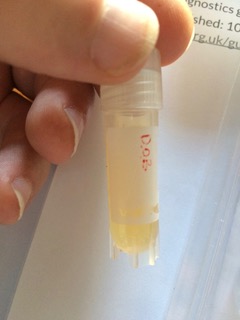PART 4: Discovering the Truth About Sheila’s Chemo

It had been a long year for Sheila and I, with the shock of the diagnosis, operation, its aftermath and now the very real frustration of a lack of clarity regarding the dosing of her chemotherapy. On this issue, it felt like we were just not being listened to, never mind actually heard. Despite my best efforts to discuss dosing with her oncologists, they refused to engage on any need to check that their calculated BSA dose was actually right for her as an individual , to make sure they were not over or under-dosing her . Every time we raised it, they, figuratively speaking, just stuck their fingers in their ears and went la-la-la-la-la. It was just infuriating me, so with help from DeWayne at Saladax, who had one of his Research Fellows send me a blood draw kit to stabilise Sheila's blood plasma at room temperature for long enough to get it to a lab for analysis easily and with his help to identify a lab that could do the test, I got on my way to doing something about it with